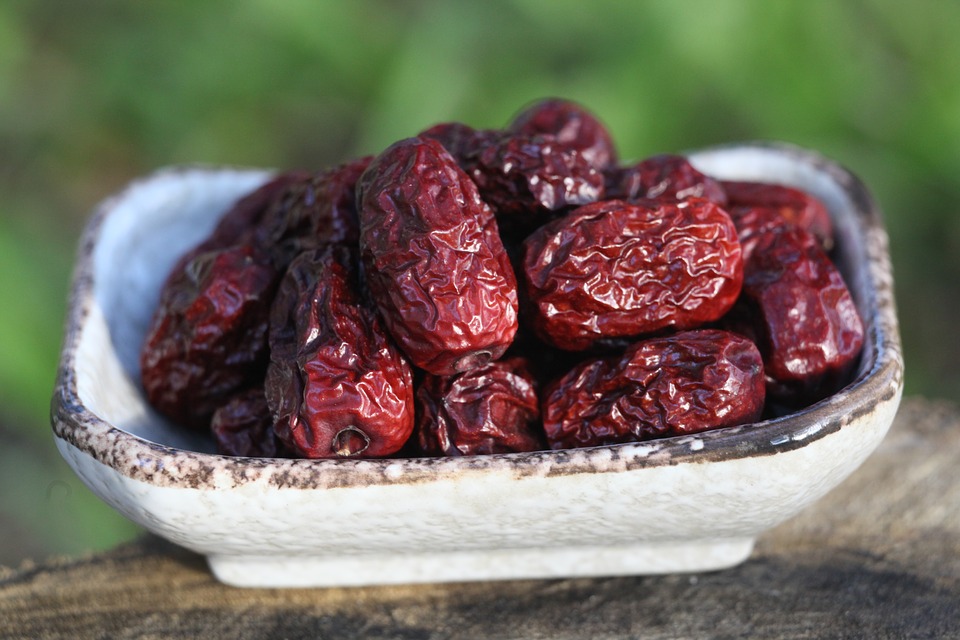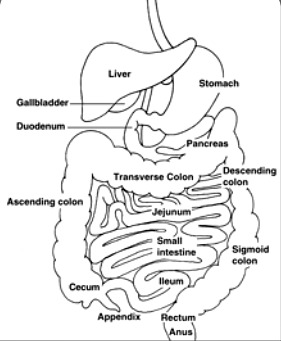Abdominal Pain And Gas
How Does Gas Get into the Stomach?
The body produces gas as part of the natural digestive process. The food we eat travels from our mouth down to the stomach and then through the length of the small and large intestines, some 6 to 10 meters.
Throughout the digestive process, chemicals are released at different points to help break down the food we eat so our bodies can extract nutrients, and various types of bacteria are present in our guts to aid in digestion and absorption. The undigested food material is broken down and passed out as faeces. This process also produces gases.
As we eat, we also swallow air, which contributes
to the amount of gas that passes through us. At any given time, there is 150ml
to 2000 mls (half pint to four pints) of gas moving through our bowels. The
amount of gas depends on your diet, build, and the amount of air swallowed
eating, drinking, and smoking.
Why Am I Having Stomach Pain and Gas?
Most people experience some level of discomfort when the gas moves too
slowly through the bowels or is hindered from escaping. This hindrance causes
distention and stretching of the wall of our bowel. Much like blowing wind into
a balloon stretches the balloon, gas that stays trapped in the bowels make us
feel bloated and causes abdominal pain. The next section details some of the
common causes of stomach pain from excess gas.
Causes Of Abdominal Pain And Bloating
According to the Mayo Clinic research, it is normal to fart or release intestinal gas between 10 to 23 times a day. If you are farting more than this, or frequently having abdominal pain and gas or feeling of distension or bloating or even excessive burping, then you may be producing too much intestinal gas.
The following are common causes of abdominal pain and bloating due to excessive intestinal gas production. Most times, excessive gas production is harmless and not the result of illness. But for the sake of comfort and overall well-being, it’s a good idea to look out for some of the these gas triggers.
 Long conversations is one of the easiest ways to swallow air and accumulate excess gas in the stomach.
Long conversations is one of the easiest ways to swallow air and accumulate excess gas in the stomach.Swallowing Too Much Air
There are a handful of ways we commonly ingest too much air just by
carrying on our regular daily activities. We often get too much air from eating
too quickly, like during short lunch breaks; chewing gum; long conversations;
and drinking fizzy drinks. All four of these everyday occurrences can result in
accumulation of gas in our stomach and intestines.
Food Choices
Eating certain types of food like those rich in dietary fibre or complex carbohydrates can make you produce more gas than normal and lead to excessive flatulence or belching. Popular foods that may cause gas are include cabbage, broccoli, onions, dried fruits, soya beans and soy products, cauliflower, Brussel sprouts, asparagus, dairy products, artichokes, pasta, scallions, boiled and roasted corn, and foods rich in sorbitol.
You can find a more detailed list of foods that cause excessive gas production by clicking
this link.
Lactose Intolerance
Sixty-five percent of the world population has some level of
intolerance to milk sugars (lactose) after infancy. Lactose intolerance
presents as bloating that may accompany or develop into abdominal pain and gas
distension. People who have a reduced ability to digest lactose have trouble
not just with milk, but also milk-based products like cheese, yogurt, milk
chocolate, ice cream, and even biscuits.
Coeliac Disease
Coeliac disease is a reduced tolerance to food items containing wheat, barley,
or rye. It is also referred to as gluten sensitivity. People with coeliac
disease can have mild or severe reactions to eating foods like bread, biscuits,
cakes, and food made from wheat flour. Reactions include bloating, abdominal
pain, loose stools, and skin rash. You can read more about coeliac disease here.
Gallbladder Disease
Gallstones and gall bladder disease can cause abdominal pain and gas
distension in the upper right abdomen. Such pain often comes on after eating
rich or fatty meals like fries. You can get more information on gallstones to
help you determine if any upper right abdominal pain and bloating you may be experiencing is the result of gall
bladder disease.
Gastro Oesophageal Reflux Disease (GORD)
Gastro oesophageal reflux disease is a condition where the stomach
contents push backward into the oesophagus, causing a host of abdominal issues
including gastritis, acid reflux, hiatus hernia, upper stomach cramps, and
bloating. GORD is usually most active after meals.
Peptic Ulcer
A peptic ulcer is a sore that develops on the lining of the stomach,
small intestine, or oesophagus. While the medical community has not identified one single source of peptic ulcers, it is
believed ulcers are caused by a chemical imbalance in the stomach, coupled with
infection. Peptic ulcers cause upper abdominal pain and bloating above the
belly button or umbilicus. The pain is often brought about by eating in some
cases, and the pain might spread to the upper back.
Constipation
Constipation is the infrequent passage of stool or the passage of unusually
hard stools. Severe constipation could lead to trapped wind and abdominal pain
and gas.
 Dried fruit like dates, prunes, and apricots are packed with fiber and act as a natural laxative to help relieve abdominal pain and gas.
Dried fruit like dates, prunes, and apricots are packed with fiber and act as a natural laxative to help relieve abdominal pain and gas.Irritable Bowel Syndrome (IBS)
Irritable bowel syndrome is one of the most common causes of lower
abdominal pain and gas or bloating. IBS can occur at any age, but it is more
common in young women in their late teens up to mid-thirties. If you have
frequent lower left abdominal pain, bloating, constipation or diarrhoea, on and
off for more than six months, you most likely have irritable bowel syndrome. Often, intolerance to certain types of foods
and stress trigger IBS.
Diverticulitis
This is a condition more often seen in people 50 years and older. Diverticulitis
causes lower abdominal pain, bloating, and diarrhoea. There can also be small
amounts of blood in the stool.
Crohn’s Disease
Crohn’s disease is an ongoing inflammatory bowel disease that causes
mild, moderate, and severe lower abdominal pain, bloating, gas, and the passage
of blood, mucus, and slime in the stool. Crohn's disease can be mistaken for other digestive problems if
not properly diagnosed.
Intestinal Obstruction
Intestinal or bowel obstruction is a condition whereby digested food
cannot pass through the bowel. It characteristically causes a central or lower
abdominal pain, bloating, and cramping pain that comes and goes away in short intervals.
If this condition progresses, the abdomen becomes distended and swollen and the
sufferer might find out that he or she belches or burps a lot, feels nauseated,
and may vomit. Bowel obstruction often presents as constipation, or an
inability to even break wind (fart). Intestinal obstruction is a serious
medical condition.
Bowel Cancer
Bowel cancer is cancer in the colon or rectum. It causes abdominal pain,
bloating with weight loss and diarrhoea. If you are over 50 years of age, and
have, in the last 3 to 6 months noticed a change in the way you go to toilet
(whether constipation or diarrhoea), and have been having abdominal pain and
gas, whether with weight loss or not, it is advisable that you see your doctor
for a check-up. Bowel cancer is not the most common cause abdominal pain and
bloating, especially in young and middle aged persons.

Treatment Options
The first step in treating abdominal pain and gas is diagnosis. Diagnosing your problem can start as simply as determining whether excessive intestinal wind lasts for only a few minutes, a few hours, or a few days. If your abdominal pain and bloating goes on for more than an hour or two, or is not corrected by bowel movement, it may be necessary to get a professional opinion from your healthcare provider.
Recurrent trapped wind, or intestinal gas is no cause for great concern. In fact, it can be quite easy to remedy excessive gas.
Consult Your Doctor. Whether this is your first choice or last
resort, consulting your doctor is a good strategy to help get you back on track
if you have had abdominal pain and gas for more days than usual. Your doctor will
be able to assess your overall health and your symptoms and diagnose your
problem. More, your doctor can prescribe the appropriate treatment to quickly
help you regain your digestive balance.
Abdominal Pain And Gas - Let's Hear From You
Do you have a great story or experience or perhaps troubles with abdominal pain and excessive farting or flatulence? Share it! We will be very pleased to hear your thoughts on this most exciting but sometimes embarrassing topic.
What Other Visitors Have Said Regarding Abdominal Or Stomach Pains And Gas
Click below to see contributions from other visitors to this page...
chronic stomach pain and gas 




I am 25 years old. I have had stomach pain for 2 years now. Anytime I go to get checked they never have an answer and they send me home. Last Dec I was …
Severe bloating in the abdomen and painful cramps, and wind pains Not rated yet
Severe bloating in the abdomen and painful cramps, and wind pains.
Hi.
For the past couple of years I've been suffering with sever tummy bloating …
|
Help Keep This Site Going |
Last Updated: 2nd December 2012

Related Topics:



